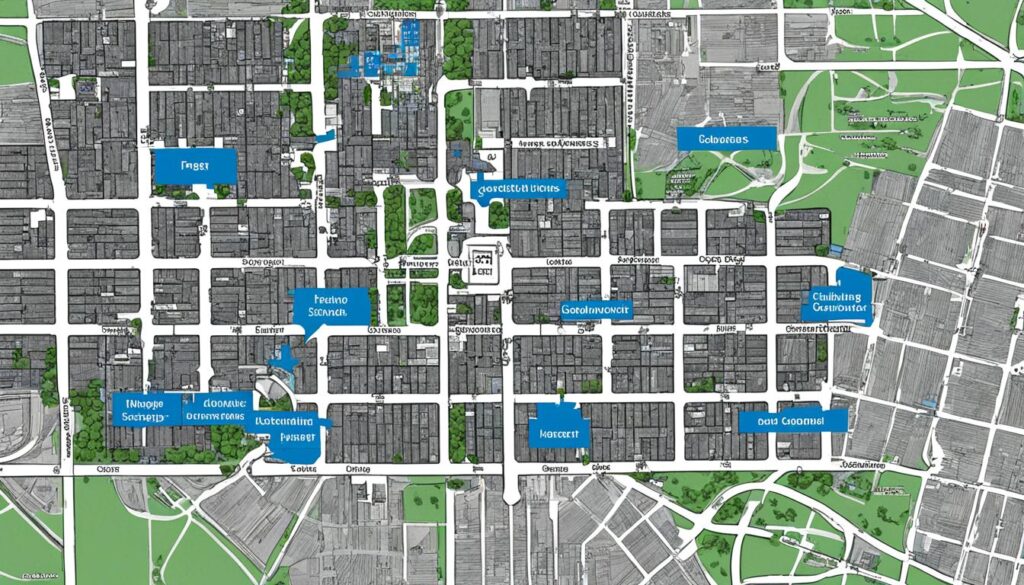Physical Address
304 North Cardinal St.
Dorchester Center, MA 02124
Physical Address
304 North Cardinal St.
Dorchester Center, MA 02124

Filing for divorce in Cook County, IL, can feel like navigating a maze without a map. You’re not just dealing with the emotional roller coaster; there’s also a pile of paperwork waiting for your attention. But don’t worry, we’re here to light the way.
From understanding the initial steps to knowing what documents you’ll need, this guide aims to simplify the process. We’ll break down the legalese into plain English, so you’re equipped to take the next step.

Whether you’re just starting to consider your options or you’re ready to file, keep reading. We promise to provide the insights you need to move forward with confidence.
To get more info on filing for divorce in Illinois, find a detailed overview in our article, How to File for Divorce in Illinois.
Before filing for divorce in Cook County, Illinois, it is important to understand the eligibility criteria. Cook County has specific requirements that must be met in order to file for divorce. These requirements include residency and grounds for divorce.
In order to file for divorce in Cook County, at least one of the spouses must have been a resident of the county for a specific period of time. The residency requirement for divorce in Cook County is a minimum of 90 days prior to filing.
Cook County recognizes irreconcilable differences as the only ground for divorce. This means that the marriage has broken down irretrievably, and there is no possibility of reconciliation between the spouses.
It is important to note that Illinois is a no-fault divorce state, meaning that fault or blame for the breakdown of the marriage is not considered in the divorce process. Instead, irreconcilable differences serve as the sole basis for granting a divorce.
Understanding the grounds for divorce is crucial for initiating the divorce process. In Cook County, Illinois, the only recognized ground for divorce is irreconcilable differences. This section will delve into the concept of irreconcilable differences and its significance in divorce proceedings in Cook County. It will also touch upon other potential fault-based grounds for divorce in Illinois.
When filing for divorce in Cook County, it is important to understand the grounds on which the court can grant a divorce. The term “grounds for divorce” refers to the legal reasons or justifications for ending a marital relationship.
In Cook County, the primary ground for divorce is irreconcilable differences. This means that the spouses have encountered problems in their marriage that cannot be resolved, leading to the irretrievable breakdown of the marital relationship.
This concept of irreconcilable differences reflects the no-fault divorce laws in Cook County. In a no-fault divorce, neither spouse is required to prove wrongdoing or assign blame for the dissolution of the marriage. It allows couples to end their marriage without going through a lengthy and contentious legal battle.
Other fault-based grounds for divorce, such as adultery, abandonment, or cruelty, are also recognized in Illinois. However, these fault-based grounds can be more complex and require providing evidence to the court. Consequently, many couples choose to proceed with a no-fault divorce based on irreconcilable differences to minimize conflicts and expedite the process.
By understanding the grounds for divorce, individuals can make informed decisions about the most appropriate approach to ending their marriage. Whether it is through irreconcilable differences or fault-based grounds, individuals should consult with an attorney familiar with divorce laws in Cook County to navigate the process effectively.
Filing for divorce in Cook County requires a series of steps and the completion of specific documents. This section will provide a detailed guide on how to file for divorce in Cook County, including filling out the required documents, filing them with the court, and informing the spouse about the divorce filing. It will also address the importance of seeking legal representation or assistance during the filing process.
Before filing for divorce in Cook County, you need to gather and fill out the necessary divorce forms. These documents typically include:
Once you have completed the necessary documents, you must file them with the Cook County Circuit Court. Follow these steps to file your divorce documents:
After filing the divorce documents with the court, you must notify your spouse about the divorce filing. This notification, known as service of process, ensures that your spouse is aware of the divorce proceedings. The specifics of how to inform your spouse may vary depending on the circumstances and the court’s requirements. It is advisable to consult with an attorney or legal professional to ensure proper service.
Filing for divorce in Cook County, Illinois comes with certain costs, including filing fees. It is important to understand the financial obligations involved in the divorce process.
| Description | Fee |
|---|---|
| Filing Fee for Petitioner (beginning the divorce case) | $388 |
| Appearance Fee for Respondent | $250 |
| Sheriff Service Fee | $60 |
| Joint Filing via Mediation (cost note) | Generally cheaper |

The court is located at:
555 W Harrison St, Chicago, IL 60607, United States
Filing for divorce without an attorney is a choice made by some individuals who feel confident in navigating the process on their own. While legal representation is recommended, it is important to understand the key considerations, resources, and potential challenges of self-representation in Cook County, IL.
When filing for divorce without an attorney, it is crucial to educate yourself about the divorce laws in Cook County and understand the necessary steps involved. Researching the specific requirements and procedures can help ensure you meet all the necessary deadlines and submit the correct paperwork. Utilize online legal resources, self-help guides, and form templates provided by Cook County to guide you through the process.
However, it is essential to be aware that self-representation in divorce, also known as pro se divorce, can be a complex and demanding task. Without legal expertise, you may face challenges in navigating the legal system, understanding complex legal terminologies, and properly presenting your case. It is highly recommended to thoroughly evaluate your capability to handle the process independently and to seek professional legal advice whenever necessary to avoid potential pitfalls.
Ultimately, the decision to file for divorce without an attorney should be based on a careful assessment of your own capabilities, knowledge of the process, and willingness to invest the time and effort necessary to properly handle all aspects of your case. By educating yourself, utilizing available resources, and seeking guidance when needed, you can navigate the divorce process in Cook County with confidence.
To see how this process of filing for divorce in Cook County compares to that in other Illinois counties, check out our articles about how to file for divorce in Champaign County and filing for divorce in DeKalb County.